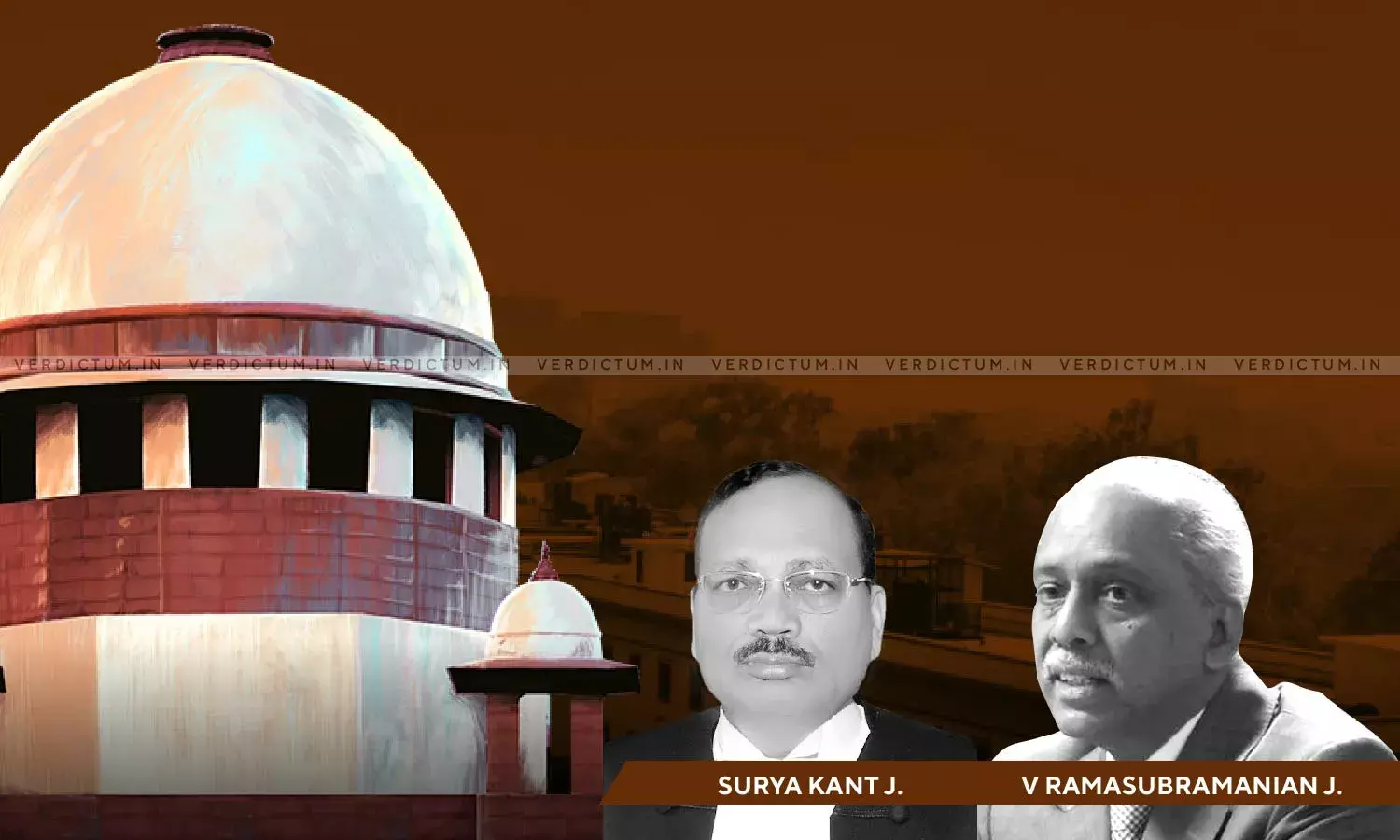Motor Accident Claim- Income Tax Returns And Audit Reports Are Reliable Evidence To Determine Income Of Deceased: SC

While adjudicating upon a matter involving motor accident claim, the Supreme Court has reiterated that documents such as income tax returns and audit reports are reliable evidence to determine the income of the deceased.
The Bench of Justice Surya Kant and Justice V. Ramasubramanian placed reliance on the decision made in Amrit Bhanu Shali v National Insurance Co. Ltd. and Kalpanaraj v Tamil Nadu State Transport Corpn. and observed "…this court has held that documents such as income tax returns and audit reports are reliable evidence to determine the income of the deceased."
In this case, one S Kumareshan (Deceased) had passed away in an unfortunate accident. At the time of his demise, he left behind a widow, two minor children and parents who were stated to be dependent on him. Among these dependents, the father of the Deceased passed away during the proceedings before the High Court.
The Deceased's dependents filed a claim petition for Rs. 7,00,00,000/ in August 2004. The claim petition of the Deceased's dependents was allowed partly, and compensation of Rs 4,29,37,700/ was granted along with interest at the rate of 7.5% per annum.
The aggrieved Insurance Company filed its appeal before the High Court. The High Court concluded that the Deceased's dependants suffered no loss of income and instead computed the compensation by fixing his salary at Rs 25,000/ per month on a notional basis as per his educational qualification. Furthermore, it also made minor alterations under other conventional heads and accordingly, the compensation was reduced to Rs 57,90,000/ along with interest of 7.5% per annum.
An appeal was filed before the Supreme Court against the Order of the High Court.
Senior Advocate K. Radhakrishnan appeared for the Appellants whereas Advocate Sakshi Kakkar and Advocate Hetu Arora Sethi represented the Insurance Company.
The Court observed that the High Court determined the income of the Deceased on a notional basis as per his educational qualification. The Court noted that such an approach was erroneous.
The Court held that it was obliged to modify the compensation, especially when neither any additional evidence has been produced to showcase that the income of the Deceased was contrary to the amount mentioned in the audit reports nor it is the stand taken by the Insurance Company that the said reports inflated the income.
The Court divided the income as mentioned in the audit reports into two parts – (a) Income from Business Ventures and other Investments and (b) Income from House Property and Agricultural Land.
The Court observed that "The mere fact that the Deceased's share of ownership in these businesses ventures was transferred to the Deceased's minor children just before his death or to the dependents after his death is not a sufficient justification to conclude that the benefits of these businesses continue to accrue to his dependents."
The Court awarded Rs 10,93,000/ to the Appellants as loss of income derived under 'Income from Business Ventures and other Investments' and Rs 2,50,000/ as the amount for the Deceased's managerial skills.
The Court observed "In light of the above discussion, income of the Deceased is computed by adding the amount awarded under the two parts ( Rs 10,93,000/ + Rs 2,50,000/), which comes to Rs 13,43,000/. In terms of Pranay Sethi, forty per cent of the income has to be added towards future prospects, which would come to Rs 18,80,200/. After deducting onefourth towards personal expenses as per Sarla Verma, the net amount comes to Rs 14,10,150/ per annum. Applying the multiplier of 16, the total loss of dependency on account of the Deceased's income is calculated at Rs 2,25,62,400/. We further grant compensation under the remaining conventional heads as per the decisions in Pranay Sethi and Satinder Kaur."
Hence the total compensation determined was Rs. 2,27,12,400.
"We also direct that the interest at the rate of 7.5% per annum shall be payable on the aforesaid amount from the date of filing the claim petition till the date of realization. The enhanced amount shall be paid to the claimants within three months from today. Needless to say, that the amount already paid or deposited shall be adjusted while depositing the enhanced compensation awarded by this court.", the Court added further.
Accordingly, the impugned judgment of the High Court was set aside.
Cause Title- K. Ramya & Ors. v. National Insurance Co. Ltd. & Anr.
Click here to read/download the Judgment

